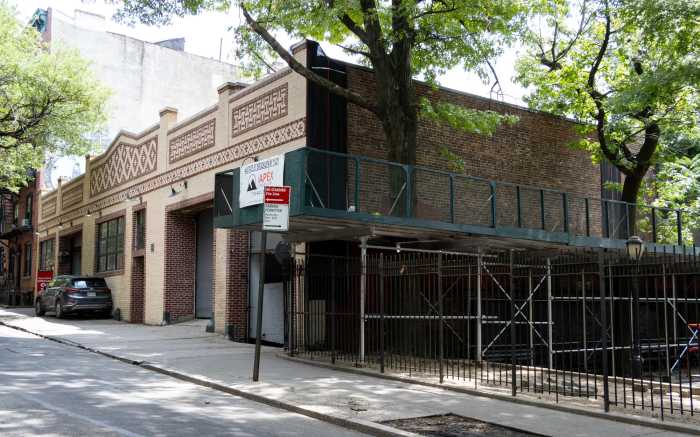Check it out!
Red Hook’s Brooklyn Public Library branch is getting a $15 million facelift to make the book-lender more flood resistant and spacious, according to officials.
Construction on the Wolcott Street library — which is slated to start in the fall of 2020 and last until spring 2022 — will help the branch meet the city’s flood code and replace its mechanical systems with an overhaul of the interior and exterior of the building.
The flood-resilience project — paid for by capital funds by Councilman Carlos Menchaca (D–Red Hook) and Mayor Bill de Blasio — comes after the library branch suffered significant damage during Hurricane Sandy, and is located in a severe flood zone.
In addition to the flood-prevention tactics, builders will take down the bibliotheque’s front gates and install outdoor seating and native plants to make the library more welcoming, according to the library’s website.

Levenbetts
Inside, officials will rearrange bookshelves to make room for floor-to-ceiling windows — without losing book space, officials said.
Construction will shutter the Red Hook library branch for 18 months — during which book bigwigs will deploy their four-wheeled lending service Bookmobile near the library at the intersection of Dwight Street, ensuring that Red Hook bookworms won’t go without their fill.
The facelift will earmark dedicated space for children’s story times, teen programs, a community room, two small meeting rooms, and brand new furniture — along with upgraded technology.

Levenbetts
Architects with the Manhattan-based firm Levenbetts designed the makeover, and the city’s business-boosting arm the Economic Development Corporation is managing the project.
Levenbetts also redesigned the interim Brooklyn Heights Library on Remsen Street.
Brooklyn Public Library in 2014 put forward their first renovation plans for the branch for a price tag of $1.8 million, which controversially included leasing about half the building’s space to arts nonprofit Spaceworks — who wanted to transform that part into rehearsal studios for performance artists — but library honchos untimely caved on that scheme, saying they would be squeezed for space.
























